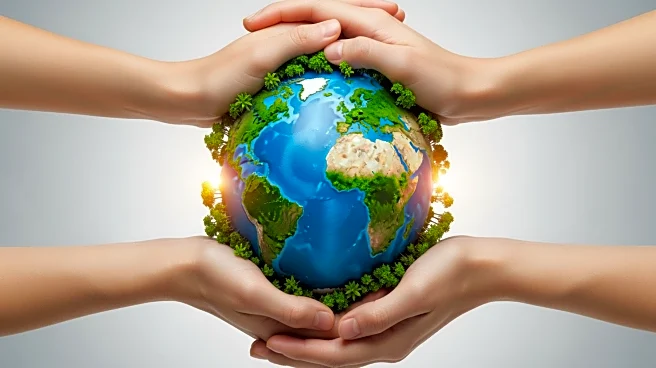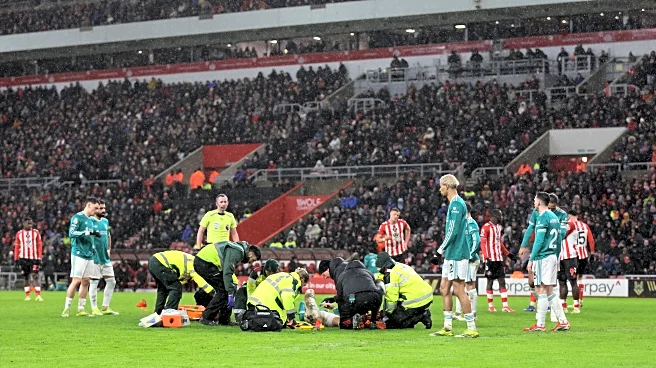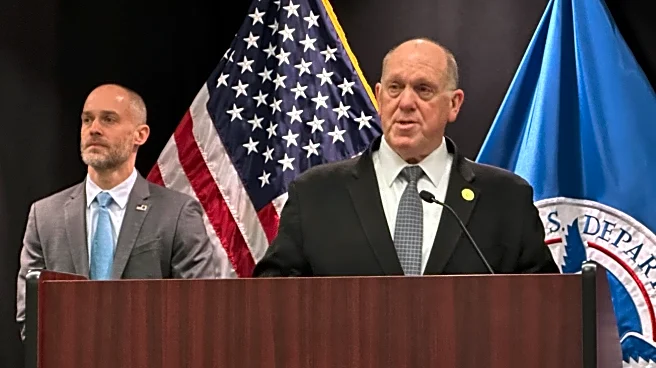What's Happening?
The European Union is working to establish new climate goals before the upcoming COP30 summit in Brazil. Ministers from the 27-nation bloc are meeting in Brussels to align their nationally-determined emissions targets, aiming for a stronger negotiating
position. The EU's climate leadership is under pressure due to domestic and international challenges, including the war in Ukraine and a volatile relationship with the United States. Despite these challenges, the EU remains committed to its climate goals, with European Commission President Ursula von der Leyen pledging to slash carbon emissions by 90% by 2040. The EU's commitments have driven investments in renewable energies and electric vehicles, although recent policy shifts have raised concerns among environmentalists.
Why It's Important?
The EU's efforts to set new climate targets are crucial as Europe is the fastest-warming continent, experiencing severe weather events like wildfires and floods. The EU's leadership in climate action is vital for global efforts to combat climate change, especially as the U.S. has retreated from the Paris Agreement. The EU's ability to align its member states on climate goals could influence global climate policies and investments in green technologies. The outcome of the COP30 summit could either strengthen or weaken the global commitment to the Paris Agreement, impacting international climate strategies and economic policies.
What's Next?
The COP30 summit in Brazil, scheduled for November 10-21, will be a critical platform for the EU to demonstrate its climate leadership. The EU aims to present a united front with aligned emissions targets, which could influence other nations' commitments. The summit's outcome will likely affect future climate policies and international cooperation on environmental issues. The EU's ability to navigate internal and external pressures will be key to maintaining its role as a global climate leader.

















